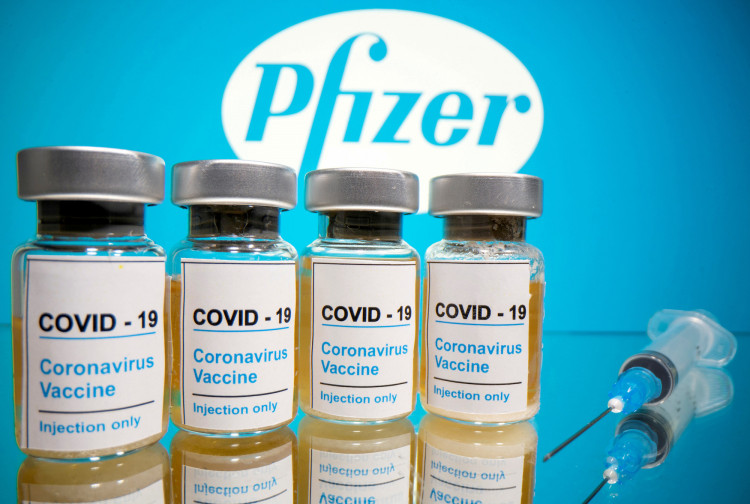Multinational biopharma companyPfizer said it will develop an updated version of its COVID-19 mRNA vaccine after a clinical study suggested the South African mutation of the virus might reduce the vaccine's efficacy by some two-thirds.
Pfizer also said it plans to develop a booster shot to complement the vaccine, which it markets along with German biotech company BioNTech SE that developed the vaccine. The study, however, found the version, BNT162b2, is still able to neutralize SARS-CoV-2 (severe acute respiratory syndrome coronavirus 2), the virus that causes COVID-19.
Pfizer said there still is no evidence from people trials that the South African mutation identified as 501Y.V2 and B.1.351 reduces the protection afforded by its vaccine. The variant can attach itself more easily to human cells because of three mutations in the receptor-binding domain in the spike glycoprotein of the virus. The spike is used by the coronavirus to penetrate human cells and is the main target of many COVID-19 vaccines.
News of the vaccine's reduced efficacy is stunning for a vaccine Pfizer said was 94.8% effective after two doses with no serious side effects against the dominant coronavirus strain called D614G. The South African strain is a mutation of D614G.
The findings of the study conducted by Pfizer/BioNTech scientists and those from the University of Texas Medical Branch (UTMB) in laboratory conditions were published in the New England Journal of Medicine (NEJM).
UTMB professor and study co-author Dr Pei-Yong Shi believes the Pfizer/BioNTech vaccine will likely be protective against the South African variant.
"We don't know what the minimum neutralizing number is," he pointed out. "We don't have that cutoff line.
Shi suspects the immune response observed is likely to be significantly above where it needs to be to provide protection. It's also unclear if the two-thirds reduction in efficacy will render the vaccine ineffective against the variant since there is no established benchmark to determine the level of antibodies needed to protect against the mutation.
Shi said even if the South African variant significantly reduces the vaccine's effectiveness, the vaccine should still help protect against severe disease and deaths. Health experts say this is the most important factor in preventing overburdened healthcare systems from becoming overwhelmed.
Shi noted more work is needed to understand if the vaccine works against the South African variant. Clinical trials and the development of correlates of protection, which are the benchmarks that determine what antibody levels are protective, will have to be conducted.
The study has the title, "Safety and Efficacy of the BNT162b2 mRNA Covid-19 Vaccine."






